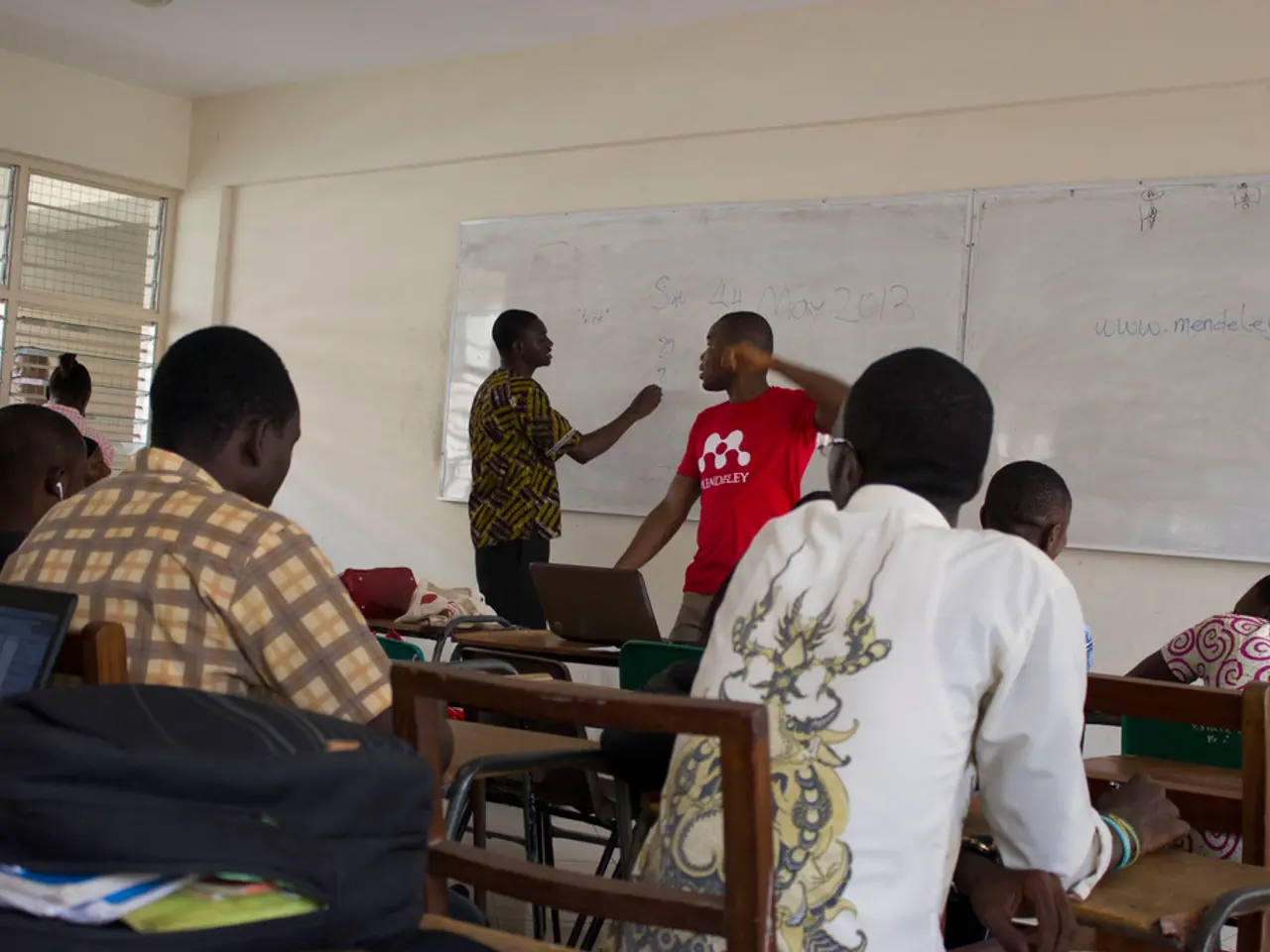Language Improvement through Content-Based Instruction (CBI) for Exceptional Fluency
Content-Based Instruction (CBI), an innovative approach to language learning, is revolutionising the way students acquire and master languages. By integrating language skills with subject matter content, CBI immerses learners in meaningful and relevant contexts, promoting active learning, critical thinking, and problem-solving skills.
At the heart of CBI implementation lies the prioritisation of essential language objectives within content areas and the leveraging of technology for digital resources. This approach ensures that language learning is not only engaging but also practical, preparing students for real-world applications.
Assessing language proficiency through CBI is a comprehensive process, evaluating learners' abilities across various language skills within the context of meaningful content. Educators employ varied evaluation methods, such as performance tasks, portfolio assessments, and oral presentations, to gauge students' comprehension and application of language skills in real-world contexts.
A case study at a bilingual school demonstrated significant language proficiency improvements among students through thematic content integration. Similarly, a community language program saw improved language skills and increased engagement among learners by incorporating culturally relevant topics.
Incorporating authentic materials into CBI exposes students to genuine language usage, allowing them to apply language skills in practical contexts. Real-life texts, videos, and resources are utilised to enhance language mastery. This approach was successfully implemented in literature courses at a university language department, fostering critical thinking skills and enhancing students' mastery.
Ongoing training programs and workshops equip teachers with the necessary tools to tailor CBI to meet the needs of diverse learners, promoting inclusivity and accessibility in language instruction. Strategies for Adapting CBI to Diverse Learners include providing differentiated instruction, incorporating diverse cultural perspectives, offering multilingual support, and implementing collaborative learning activities.
Collaborative research initiatives focusing on the efficacy of adaptive learning methodologies within CBI can provide valuable insights into personalised learning paths for learners at varying proficiency levels. Institutions such as universities with language didactics departments, including the Catholic University of Eichstätt-Ingolstadt, have engaged in introducing CBI in language teaching, focusing on bilingual learning models and empirically grounded concepts to enhance language acquisition.
In summary, Content-Based Instruction offers significant benefits for mastery enhancement, promoting active learning, critical thinking, and personalised learning experiences. By immersing learners in meaningful and relevant content, CBI is transforming language learning, making it more engaging, practical, and effective.
Read also:
- Alcohol and Hormones - A Delicate Equilibrium Prone to Disruption
- Farewell uttered to the elderly Berlin rent activist, aged 85, by his companions.
- Energy Efficiency in Housing: Implementing Gender-Targeted Strategies for a Sustainable Future (Part 2)
- Human Bacteria Unveil Fresh Understandings Regarding Human Decision Processes






